I am no psephologist, and I acknowledge that Twitter lacks scientific rigour, but in recent days I have conducted four Twitter polls. I did so largely out of curiosity, to see what they would generate.
All four related to popular opinion about democracy, human rights and the leadership of China’s Xi Jinping and Hong Kong’s Carrie Lam. The results, while not claiming to be akin to an Ipsos Mori, Gallup or Comres poll, are nevertheless interesting and indicative.
The first poll was on the question of universal suffrage versus Xi Jinping’s leadership, and the suggestion that the Chinese ambassador in London be challenged to a debate on the topic by the former Governor of Hong Kong Chris Patten, former Foreign Secretary Sir Malcolm Rifkind or someone of their stature. The voting response was relatively small – only 412 votes – but the result was 70% for universal suffrage.

The second was on whether Xi Jinping should resign, given the crises that have emerged under his leadership: in Xinjiang, Hong Kong, the trade war and the Corona virus. Out of 559 respondents, 97% said yes, Xi should go.
The third was on Carrie Lam’s leadership in Hong Kong, given that her repeated blunders have plunged the city into unprecedented crisis over the past year. Exactly 2,100 people voted, and 98% said she should resign.
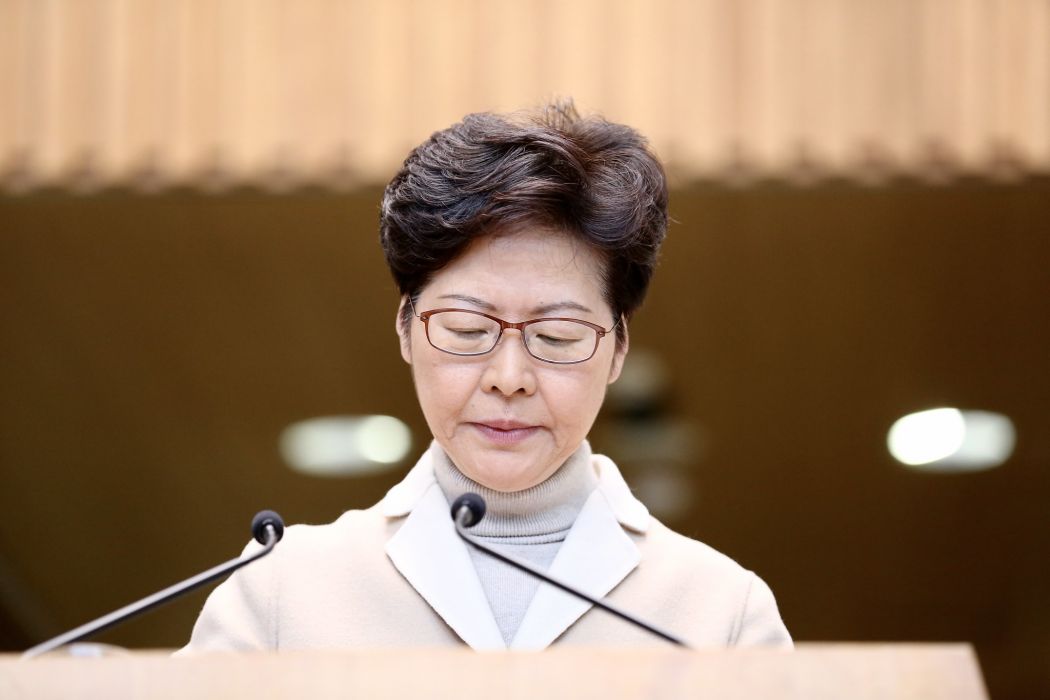
So, a massive vote of no confidence in Xi Jinping and Carrie Lam. But the most significant poll was the last, on whether Britain should impose targeted Magnitsky sanctions against individual leaders and police in China and Hong Kong for perpetrating or being complicit with serious human rights violations. This drew a response from 32,409 people, and a staggering 99.1% yes vote. The comments underneath the poll were consistent: “Definitely, this is a must”, “Please do it immediately,” “It’s a must”.
#POLL: Should Britain place #Magnitsky sanctions on key #CCP and #HongKong political leaders and Police for perpetrating or being complicit with human rights violations?
— Benedict Rogers (@benedictrogers) February 9, 2020
The international community cannot do much about the collapse of confidence in Xi and Lam. Arguably, the question of the leadership of China and Hong Kong is indeed an internal affair with which we should not interfere.
We would not like it if another country told us that our Prime Minister should resign, and so it is not for me to say what Xi or Lam should do. I am merely reporting the results of those two small polls – though any leader in any democracy who suffered such a total elimination of trust would have gone long ago. But that’s the difference between universal suffrage and dictatorship.

On the question of Magnitsky sanctions, however, Britain and the international community can and should act. Magnitsky sanctions are named after Sergei Magnitsky, a Russian lawyer who died after being tortured in jail in 2009.
His client, American entrepreneur Bill Browder, once the largest investor in Russia, was expelled from the country in 2005 after exposing corruption, which led him on a collision course with Vladimir Putin. After Magnitsky’s death, Browder campaigned for legislation in the US Congress to impose targeted sanctions – visa bans and asset freezes – on Russian officials responsible for torture and serious human rights violations.
This passed in 2012, leading to the US Global Magnitsky Act four years later, enabling the application of similar sanctions potentially to any human rights violator in the world. Other countries, including Canada, Estonia, Latvia, Lithuania, Gibraltar, Kosovo and the United Kingdom have similar legislation in place and legislation is underway in the European Union, Australia and Ukraine.
Britain’s Foreign Secretary Dominic Raab has promised to go even further. Magnitsky sanctions are already in legislation in the form of amendments to both the Criminal Finances Bill and the Sanctions and Anti-Money Laundering Bill, but Mr Raab has promised that now the United Kingdom is outside the European Union, a full Magnitsky Act will be introduced. “We will bring into force a UK Magnitsky law, to place visa bans and asset freezes on those individuals deemed responsible for serious human rights abuses, including torture,” he told the Conservative Party Conference last year.
Last month the Minister of State at the Foreign Office, Lord Ahmad, told the House of Lords that the UK is “contemplating” sanctions on China. “We would be looking to introduce Magnitsky-style sanctions … [which] will play an important part in the overall mix as we consider our human rights policy globally”.
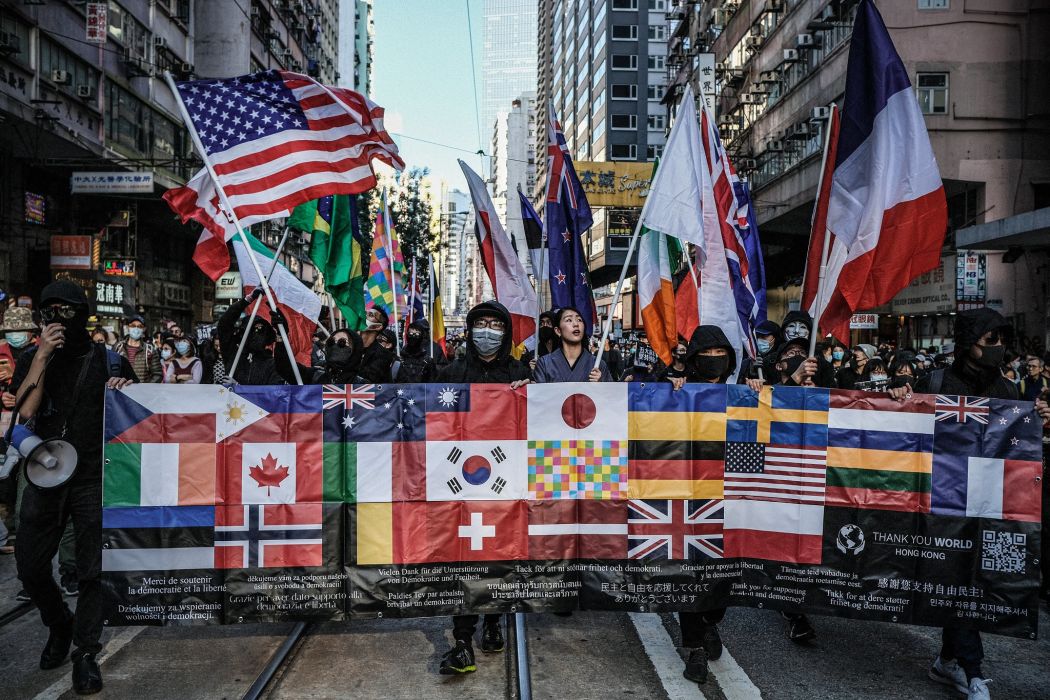
And last November the Foreign Office Minister for Asia Heather Wheeler hinted that such sanctions could be used against those responsible for human rights violations in Hong Kong.
The case for targeted sanctions against Chinese Communist Party leaders, Hong Kong government officials and police on human rights grounds is overwhelming.
The detention of at least a million, perhaps as many as three million, Uyghurs in prison camps in the Xinjiang Uyghur Autonomous Region (XUAR) has been described by expert Adrian Zenz as “the largest incarceration of an ethno-religious minority since the Holocaust”.
The reports of torture, slave labour, sexual violence and surveillance are horrific. The leaked high-level government documents which became known as the ‘China Cables’ describe the regime’s intent, in its own words, to show “absolutely no mercy”.
China’s state media have publicly stated that the goal in regard to the Uyghurs is to “break their lineage, break their roots, break their connections and break their origins.” As the Washington Post put it in a recent editorial, “It’s hard to read that as anything other than a declaration of genocidal intent.”

The escalation of repression of other minorities and dissidents adds to the case. It is widely accepted that Xi Jinping’s assault on lawyers, bloggers, dissidents and civil society has resulted in the worst crackdown on human rights since the Tiananmen massacre in 1989, and the repression of Christians is described by observers as the worst crackdown on religion since the Cultural Revolution.
Combine this with continuing repression of Tibet, and allegations of forced organ harvesting made by last year’s China Tribunal chaired by the former prosecutor of Slobodan Milosevic, Sir Geoffrey Nice QC, and the need for international action to end impunity becomes even clearer.

On top of all this, there is the dramatic erosion of basic freedoms in Hong Kong over the past year. The proposal by Carrie Lam to introduce a law to extradite people from Hong Kong’s jurisdiction to mainland China for prosecution precipitated the biggest political crisis in the city since its handover 22 years ago.
Peaceful protests were met with police brutality and, while some protesters resorted to violence in desperation at a government that refused to listen and a police force that attacked them first, police conduct has descended into shocking scenes.
Medical personnel, journalists and human rights observers have been assaulted or arrested, and an unknown number of people have disappeared. Dead bodies have mysteriously appeared.
As the last Governor of Hong Kong Lord Patten said in his recent Inaugural Paddy Ashdown Memorial Lecture, “if people believe that peaceful argument and protest … is getting them nowhere, they turn to alternatives. This is particularly the case if a lack of political engagement is accompanied by public order policing for which the adjective forceful would be a ludicrous understatement.”

Lord Patten makes the point that while over 6,000 people have been arrested as a result of the demonstrations, the police continue their reign of terror with impunity. “I am not aware of any disciplinary proceedings associated with the demonstrations having been taken against police officers despite the television and still photographs we have seen of brutal police behaviour and the wealth of other evidence to support this.”

And he asks:
Is it remotely likely that when over 6000 demonstrators have been arrested, not a single police officer has broken the law? If some of the police and the government seem to be flouting the rule of law, is it a surprise that others follow this appalling example? Is the Hong Kong police force operating within its public rules of conduct? Is the use of baton rounds, pepper spray and tear gas proportionate? Is it sensible to send police officers to deal with a demonstration armed with live ammunition? Why are the police not showing identification numbers? What is the role of under-cover officers in trying to secure public order? … To what extent have under-cover officers provoked violence? How can it be justified to treat medical workers, attempting to undertake humanitarian activities, as violent demonstrators – arresting some and detaining them as reported in The Lancet? Is it true, as has again been widely reported, that police cars have turned up when ambulances are called, that the police are sometimes patrolling hospitals in full riot gear, that injured protesters have been given special tracking codes so that they can be arrested when discharged from hospital? If these stories are not true, how come that there were so many reports to the contrary which are believed to be true? Should I not believe what I read in The Lancet?
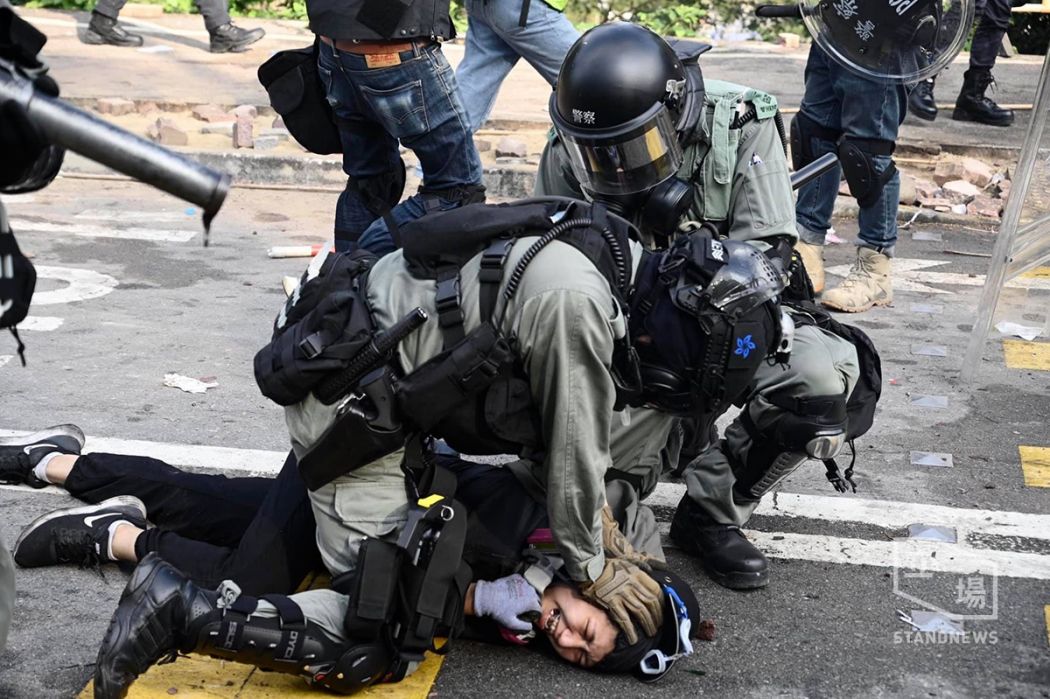
And he continues:
On the fringe of what were overwhelmingly peaceful demonstrations in June, police officers are believed to have been aggressive in dealing with peaceful demonstrators and not simply targeting the then very small minority of the violent. How can the assault on demonstrators returning home at the Yuen Long MTR station on the 21 July by a mob, widely believed to comprise mostly triad thugs, be explained? Why did the police not prevent it or take effective action? There is widespread suspicion of collusion between the security services in Hong Kong, mainland China and the triads. This should have been publicly investigated. Failure to do this understandably raises suspicion that the collusion took place.

Police brutality has not stopped, even though the protests have largely paused due to the Corona Virus crisis. On February 8, people gathered in Tseung Kwan O to commemorate the third month anniversary of the tragic death of Alex Chow Tsz-Lok, a 22 year-old student who fell to his death in the Sheung Tak estate car park last November. It is alleged that he was chased – perhaps even pushed – by police. No one has been held to account.
And worse – instead of allowing people to mourn his death, the police drove a car into the crowds, hit them with teargas, assaulted journalists and elected district councillors, and arrested 117.
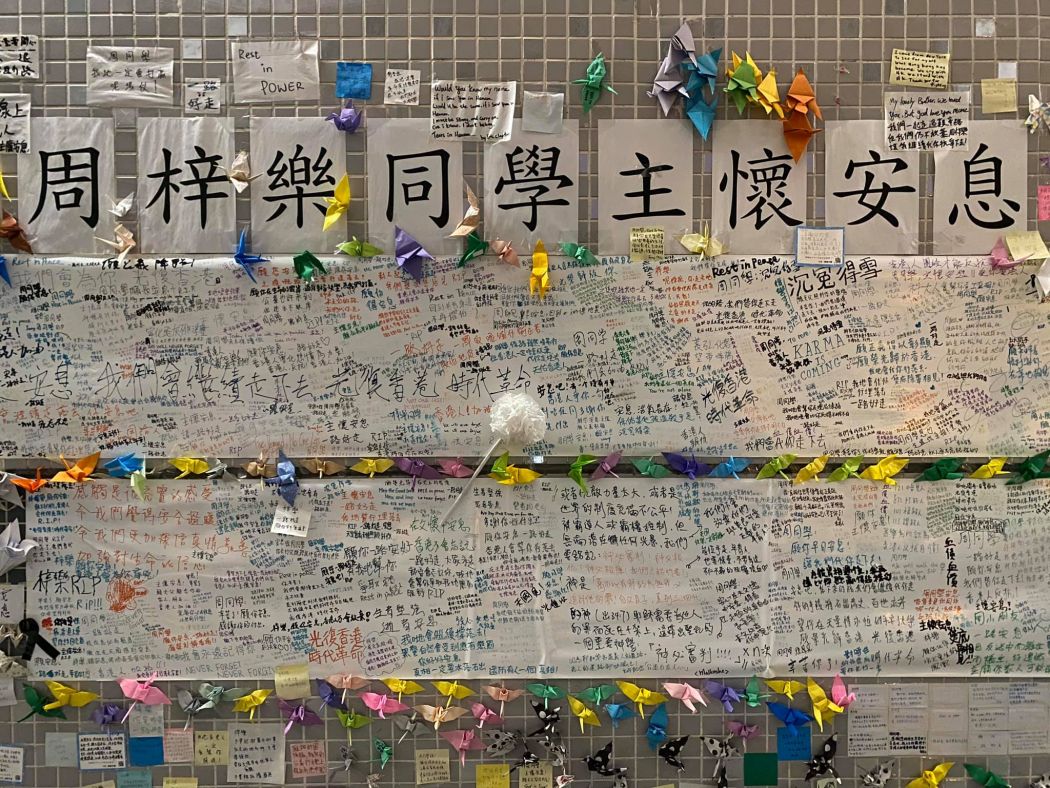
Carrie Lam condones the police conduct, denounces those in the international community who have condemned it, and is thus complicit with such brutality. Moreover, she provoked Hong Kong’s courageous medical professionals to go on strike by her refusal to seal the borders with the mainland to protect Hong Kongers from the Coronavirus. She has put Hong Kongers lives in jeopardy at every turn.
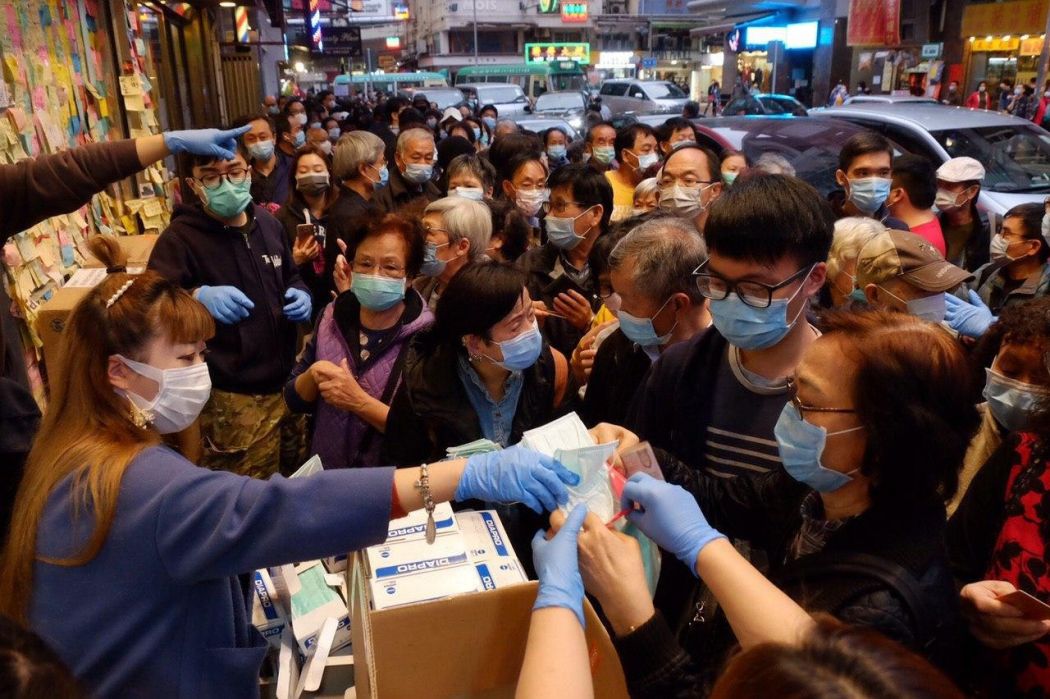
The international community cannot continue to stand by, inactive, and just watch mass atrocities in China and the destruction of one of the world’s most important financial centres and one of Asia’s most open cities. Britain, in particular, has a direct responsibility to act, at least for Hong Kong. It may say it has been trying behind the scenes, through diplomatic back-channels, and that may be so. But the time has come to realise that such back-channels have failed.
It is time to heed the call for tougher, targeted measures. Britain and others should now move fast to impose Magnitsky sanctions on key individuals in China and Hong Kong responsible for two of the biggest crimes of the 21st century: crimes against humanity in the mainland and the assault on freedom in Hong Kong. It is no longer enough to say it is “contemplating”.
A failure to act would be not only a betrayal of those struggling for their very existence and fighting for the rest of us on the new frontline of freedom – it would be a surrender of our own values, freedom and reputation.
